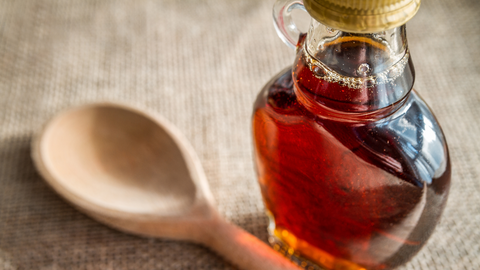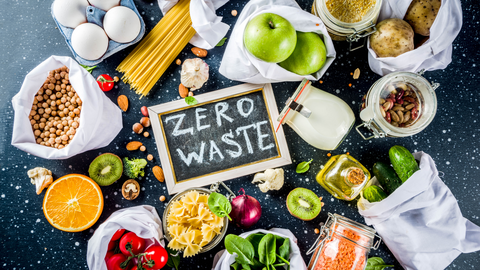Are you new to the Autoimmune Protocol Diet (AIP Diet)? It promotes the consumption of foods such as natural vinegar, fermented probiotic nutrient foods, minimally processed vegetable oil, fruits, vegetables, minimally processed animal products and non-seed derived spices. The AIP diet has many similarities to the Paleo diet such as the types of foods that are allowed and the ones that are recommended to stay away from. Although the two diets are similar, the Paleo Diet is much more lenient where the AIP Diet is more strict and focuses on autoimmune wellness. Certain foods like maple syrup, honey, sea salt, saturated fats and coconut based foods are allowed but may require some self control when it comes to moderation. Also, some rules of conduct suggest limiting fruits and vegetables that cause blood sugar to rise rapidly after consumption. Healthy fats, protein and energy are provided through consumption of quality meat and fish products. Well sourced foods that are Grass-finished, pasture-raised, wild-caught and grass-fed are best but not required.
When you dive into AIP, it can often feel like there are so many no’s. It feels like you can’t eat this or that or this or that and it can be overwhelming! With this, we’ve compiled a list of AIP compliant foods - that are delicious, nutritious and enjoyable. Our list is non all-inclusive - so we encourage you to research and find foods you love as you continue on your AIP journey.
AIP- compliant animal proteins and products:
Anchovies
Tilapia
Salmon
Tuna
Mackerel
Clams
Shrimp
Bone Marrow
Beef Jerky
Turkey
Duck
Pork
Bone Broth
Cod
Bison
Lamb
Sardines
Scallops
Goat
Lobster
Mussels
Most vegetables are approved except for nightshade vegetables which contain an alkaloid called solanine which can make you feel bad if you consume too much. Our bodies need nutrient dense vegetables in order to get enough vitamins, minerals and fiber. Once again our list is only a few and there are plenty more!
AIP- compliant vegetables:
Celery
Onions
Mushrooms
Scallions
Broccoli
Cucumber
Leeks
Sweet potato
Watercress
Chicory
Jicama
Cabbage
Radish
Parsnips
Fruits are notably high in natural sugar but it is also a great source for antioxidants and fiber.
AIP fruits -
Blackberries
Plums
Plantain chips
Apples
Mandarins
Passion fruit
Peaches
Rhubarb
Starfruit
Nectarines
Lime
Papaya
Apricots
Tangerines
Pomegranate
Raspberries
Persimmons
Lemon
Guava
A very small amount of minimally processed fats are approved. The AIP Diet bans seed oils and hugely processed fats.
AIP-compliant fats:
Olive oil
Coconut oil
Coconut butter
Avocado oil
Palm oil
Due to their probiotic-rich and gut-healthy properties, fermented foods are great for the AIP Diet. Gut issues are commonly related to autoimmune disorders therefore, fermented foods can be an awesome addition to your diet.
AIP-compliant Fermented foods/beverages and vinegars include:
Water kefir
Coconut milk kefir
Coconut yogurt
Kombucha
Pickled veggies
Sauerkraut
Kimchi
Apple cider vinegar
Red wine vinegar
AIP- compliant herbs and spices:
Mint
Saffron
Cilantro
Parsley
Thyme
Cinnamon
Garlic
Peppermint
Rosemary
Bay Leaf
Chives
Basil
Ginger
Sage
Turmeric
Dill
AIP-compliant Pantry items:
Coconut aminos
Coconut flour
Coconut Sugar
Plantain flour
Arrowroot starch
Tapioca starch
Date sugar
Dried fruit
Cassava flour
Green tea
Honey
Carob Powder
Herbal tea
Tigernut flour
Foods and such to Avoid with the AIP Diet
As with every diet there are foods you try to avoid. Processed foods, Nightshade vegetables, food additives, dairy, eggs, legumes, seeds, nuts and grains are all done away with when on the AIP diet. The AIP diet also suggests you should avoid consuming any caffeine, tobacco and alcohol. By eliminating these things, it is said to reduce inflammation and improve gut health and lining. Foods to avoid include:
Grains like wheat, rice, oats, barley, rye and also foods made from grains like bread, pasta and cereal.
Legumes such as peas, soy, lentils, beans and foods made from legumes like tofu and meat substitutes.
Nightshade vegetables, spices and natural nightshades like bell peppers, potatoes, tomatoes, eggplants, black pepper, chili pepper, paprika, star anise, coriander, cumin, celery seed, goji berries and date sugar.
Dairy such as animal milk and foods made of dairy like ghee, cheese, butter and cream.
Nuts and seeds and all foods derived from nuts and seeds like flour, butter and oils.
Highly processed vegetable oils like sunflower, soybean, cottonseed, corn, canola and rapeseed.
Refined sugars such as corn syrup, beet sugar, and cane sugar.
Food additives like preservatives, coloring, flavorings, thickeners and emulsifiers.
Processed foods
Refined carbohydrates
Refined vegetable oils, nut oils, and seed oils
Artificial sweeteners such as xylitol
NSAID’s such as Ibuprofen and aspirin
The AIP Diet is popular with people with autoimmune issues. Many find alleviation of symptoms and other improvements in their mental and physical health by doing AIP.
The most common auto-immune diseases that see improvements using AIP are:
Multiple Sclerosis
Guillain-Barré Syndrome
Type 1 Diabetes
Inflammatory Bowel Disease
Rheumatoid Arthritis
Hashimoto’s Disease
Narcolepsy
Celiac Disease
Ulcerative Colitis
Alopecia Areata
Psoriasis
Graves’ Disease
Crohn’s Disease
Lupus
Adrenal Fatigue
On the other side of people who want to try the AIP diet, are people who want a healthier lifestyle. The AIP Diet can also be great for losing weight, improving gut health, and overall feeling better. The Autoimmune Protocol Diet is not for everyone so consult a healthcare provider before diving in.
The bottom line is the AutoImmune Protocol Diet is used to eliminate inflammation in the body. It does so by taking away foods that trigger negative autoimmune responses and replacing them with nutrient rich foods that are said to reduce symptoms of chronic illness and autoimmune disorders. Perhaps it can help you on your health journey too!



